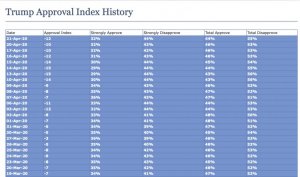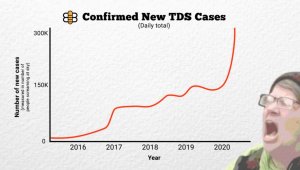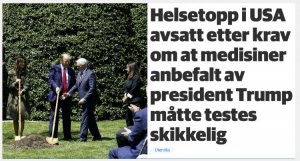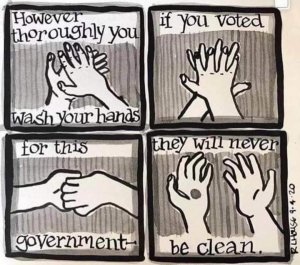Denne passer inn her, selv om det slett ikke bare er om trump. perspektiverende de luxe. sikkert best som helgelektyre grunnet lengden.
The Pessimistic Style in American Politics
And its eternal war on reform
By Thomas Frank
fra begynnelsen:
Just a few short years ago we Americans knew what we were doing: making the world into one big likeness of ourselves. We had the experts; we knew how it was done. Our policy operatives would deradicalize here and regime-change there; our economists would float billions to the good guys and slap sanctions on the bad; and pretty soon the whole place was going to be stately and neat, safe for debt instruments and empowerment seminars, for hors d’oeuvres in the embassy garden and taxis hailed with smartphones. Democracy! Of thee we sang.
Now we stand chastened, humiliated, bewildered. Democracy? We tremble to think of what it might do next.
Government of the people? When we open the door to ordinary people—let them actually influence what goes on—they insist we make bigotry and persecution into our great national causes.
Government by the people? When we let the people have their say—unmanaged, uncurated—they choose the biggest blowhard on TV to be our leader. Then they cheer for him as he destroys the environment and cracks down on immigrant families.
Heed the voice of the plain people and all the levees of taste and learning will immediately be swamped. Half of them will demand that minorities be consigned to the back of the bus; the other half will try to confiscate the hard-won wealth of society’s greatest innovators.
So goes the wail of the American leadership class as they endure another year of panic. They know on some level that what has happened in Washington isn’t due to majority rule at all, but to money and gerrymandering and the Electoral College and decades of TV programming decisions. But the anxiety cannot be dislodged; it is beyond the reach of reason. The people are out of control.
“Populism” is the word that comes to the lips of the respectable and the highly educated when they perceive the global system going haywire. Populism is the name they give to the avalanche crashing down on the Alpine wonderland of Davos. Populism is what they call the mutiny that may well turn the supercarrier America into a foundering wreck. Populism, for them, is a one-word evocation of the logic of the mob: it is the people as a great rampaging beast.
What has happened, the thinkers of Beltway and C-suite tell us, is that the common folk have declared independence from the experts and, along the way, from reality itself. And so they the learned must come together to rescue civilization: political scientists, policy wonks, economists, technologists, CEOs, joining as one to save our social order. To save it from populism.
This struggle has a fundamental, almost biblical flavor. It is a battle of order against chaos, education against ignorance, mind against appetite, enlightenment against bigotry, culture against barbarism. From TED talk to red carpet, the call rings forth: Democracy must be controlled . . . before it ruins our democratic way of life.
The aim is not merely to resist President Donald Trump, the nation’s thinkers say. Nor is the conflict of our times some grand showdown of left and right. No, today’s political face-off pits the center against the periphery, the competent insider against the disgruntled sorehead. In this conflict, the side of moral right is supposed to be obvious. Ordinary people are agitated—everyone knows this—but our concern must lie with the well-being of the elites whom the people threaten to topple.
This is the core assumption of what I call the Democracy Scare: if the people have lost faith in the ones in charge, it can only be because something has gone wrong with the people themselves. As Jonathan Rauch, a senior fellow at the Brookings Institution and a contributing writer at The Atlantic, put it in the summer of 2016: “Our most pressing political problem today is that the country abandoned the establishment, not the other way around.”
[…]
Thus the tragic flaw in the populist approach: its ideal of government of, by, and for the people doesn’t take into account the ignorance of the actual, existing people. The people can’t find Syria on a map; they think God created humans in one day in their existing form; and if you give them the chance, they will go out and vote for a charlatan like Trump.
This is what made the election of 2016 a veritable “dance of the dunces,” according to the Georgetown political philosopher Jason Brennan’s book Against Democracy, an accounting of the ignorance of the average American that offers hints about how an enlightened modern government might, in effect, disenfranchise the stupid and so deal with the problem of democratic error.
There’s something peculiar about all this. The English language provides a great many solid choices for someone wishing to describe a leader who plays on mob psychology or racial intolerance. “Demagogue” is an obvious one, but there are others—“nationalist,” “nativist,” “racist,” or “fascist,” to name a few. They are serviceable words, all of them. In the feverish climate of the Democracy Scare, however, none of those will work: “populist” is the word we are instructed to use. “Populists” are the ones we must suppress.
Let’s find out why.
…












